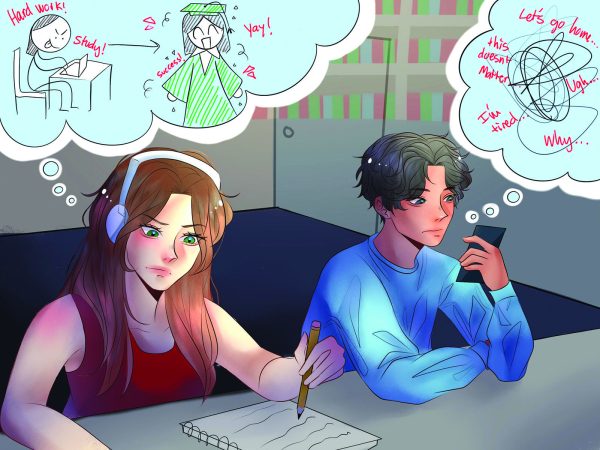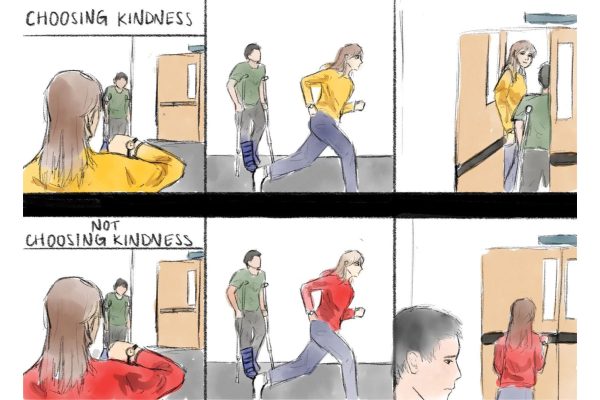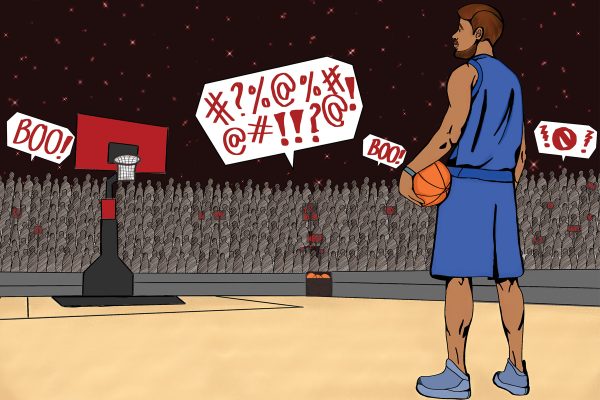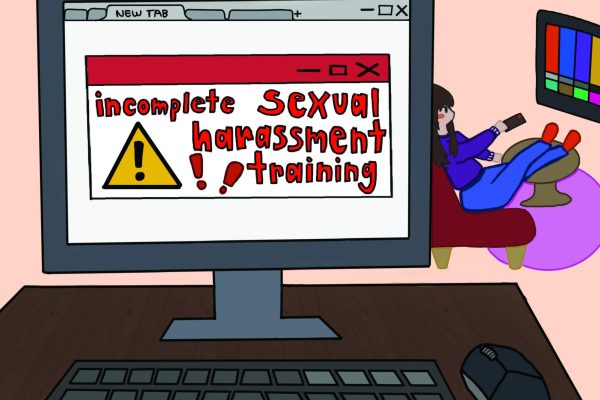Sorry, I’m not sorry
High school has turned me into a cranky old man.
Somehow, in just four short years at Glenbrook North, I’ve sped through the entire life cycle at a remarkable pace.
I started freshman year wide-eyed and bright-faced. I attended football games, dressed up in green and gold for assemblies, went out on the weekends, walked with a smile in the halls and showed a general enthusiasm for life.
I’m ending my senior year dead-eyed and blank-faced. I haven’t attended a school-sponsored event in years and have managed to coincidentally schedule a doctor’s appointment every time there’s been an assembly. I glare at people in the halls and generally attempt to interact with as few of my peers as possible.
So what changed? It certainly wasn’t my environment — GBN is still just as chock-full of loud, over-enthusiastic students and endlessly persistent event-pushers as it was four years ago. It wasn’t my courses, I’ve always been one to put too much on my plate, or my activities either — those have stayed pretty constant.
The only factor that’s changed is my outlook.
I have become unwaveringly unapologetic. And contrary to popular opinion, I don’t think this is a bad thing.
A few months ago during a college interview, my interviewer asked me to recall a moment that sparked a period of personal growth. The first thing that came to mind was a debate round that I participated in my freshman year. My judge, upon conclusion of the round, informed me that I had apologized to my opponents during the course of the debate 37 separate times. She kept a tally.
It had never occurred to me before then that saying “sorry” could be perceived so negatively.
“Sorry” is not always a sign of politeness or gratitude. Sometimes, the visceral reaction to constantly apologize for your thoughts can be indicative of a larger problem: a society that breeds followers instead of people that enjoy thinking for themselves.
Four years ago, I was quick to apologize for my opinions, but the activities that I’ve been involved with in most at GBN — Debate and Torch — have taught me the value of disagreement and of dissent. More importantly, they have taught me that in a world fraught with each voice trying to drown out the next, sometimes there is no better answer than absolute belligerence.
The world needs unapologetic youth. The world needs unapologetic dissenters. The world needs unapologetic women.
So stop saying sorry.







